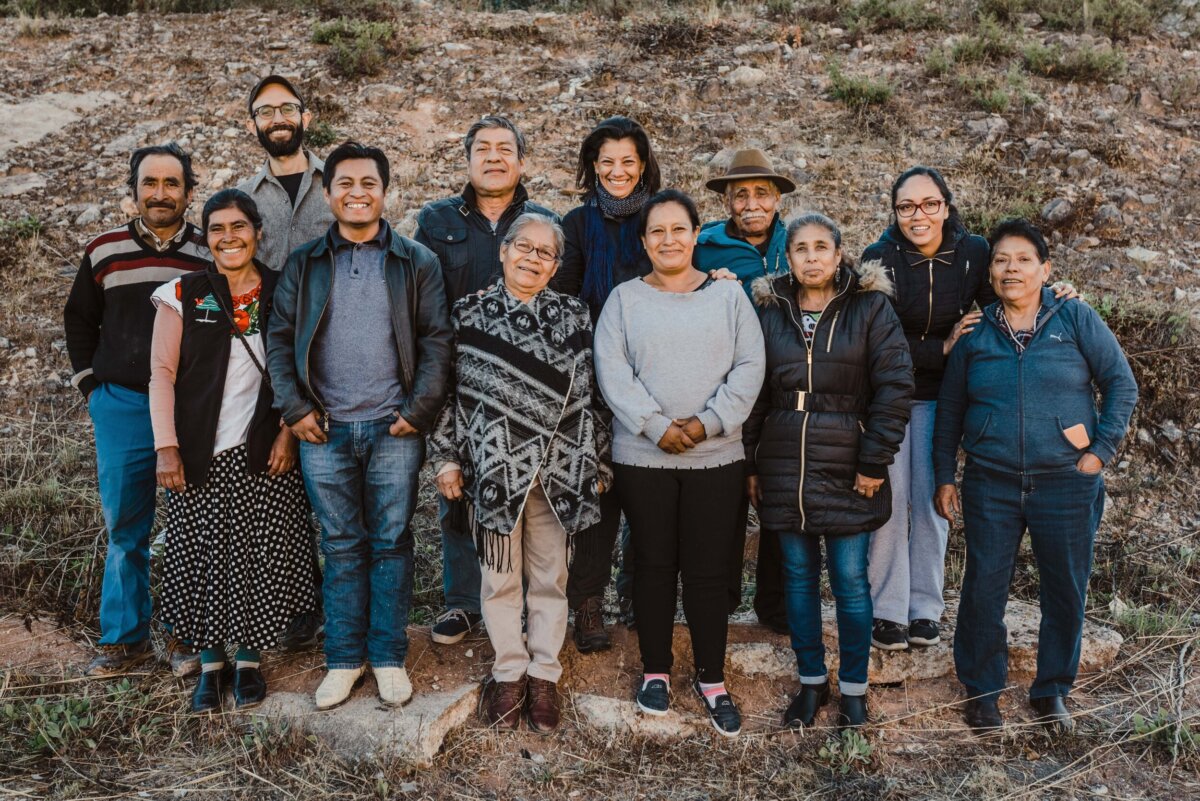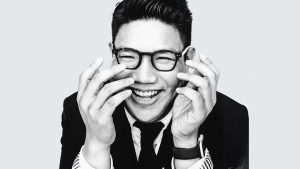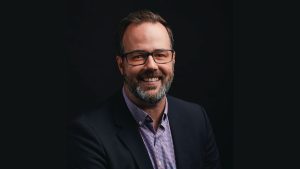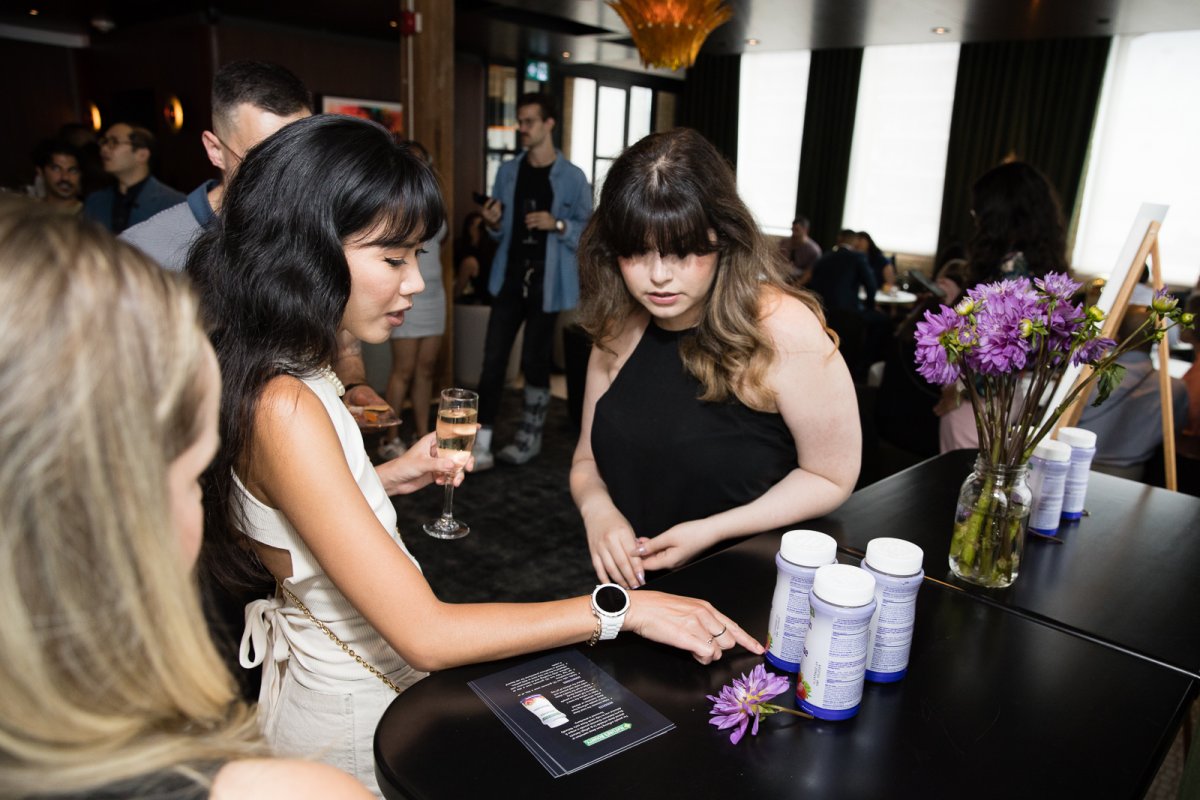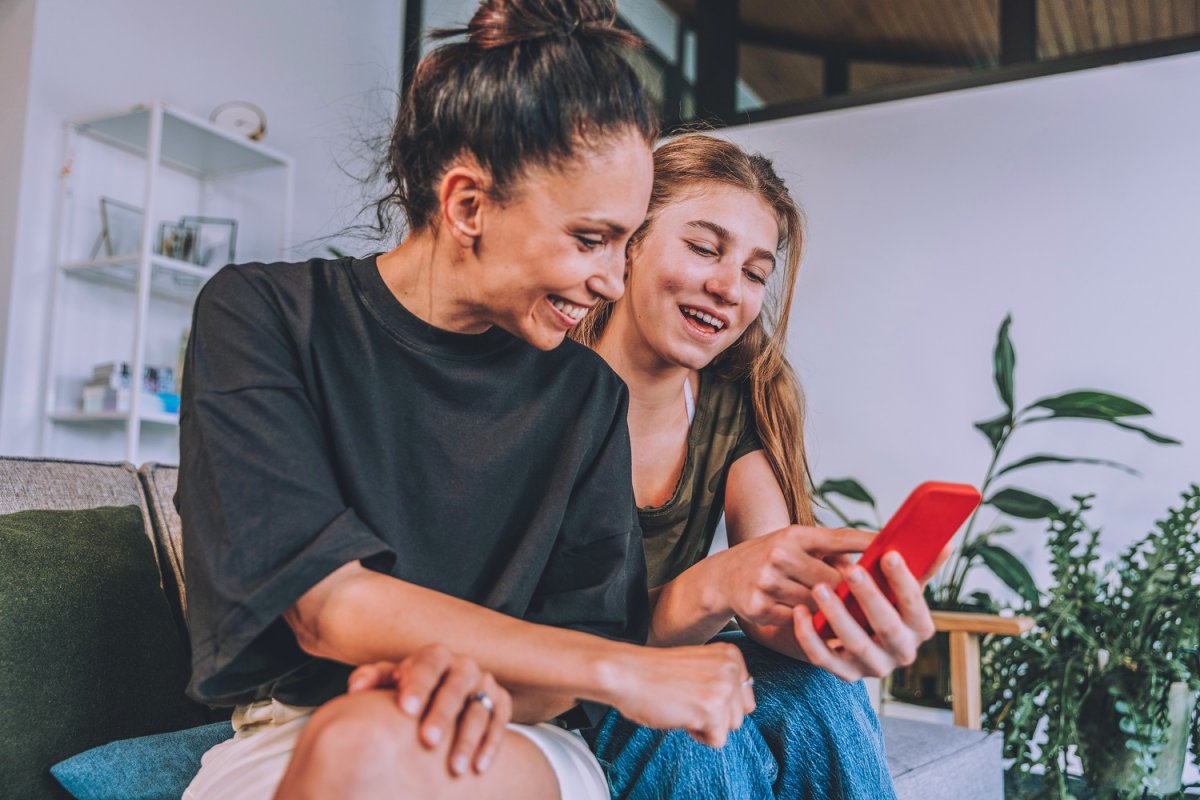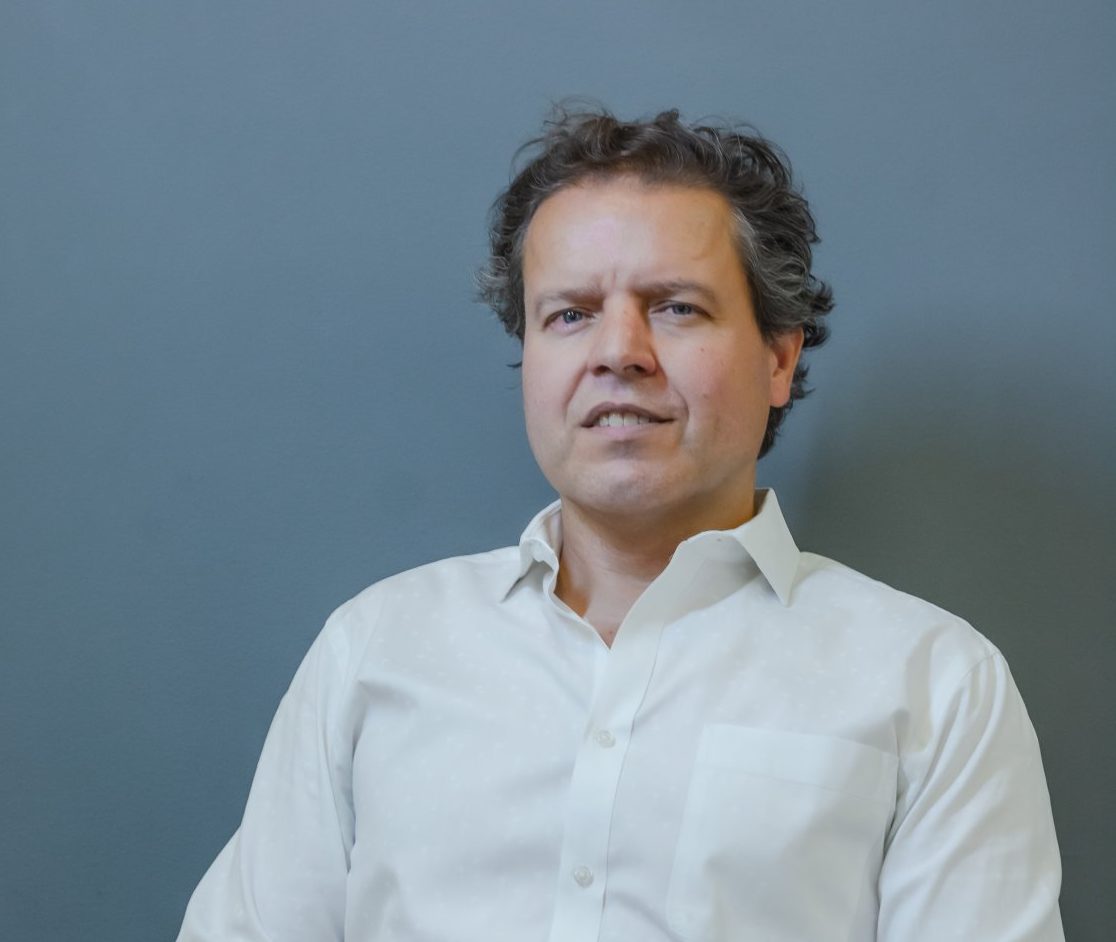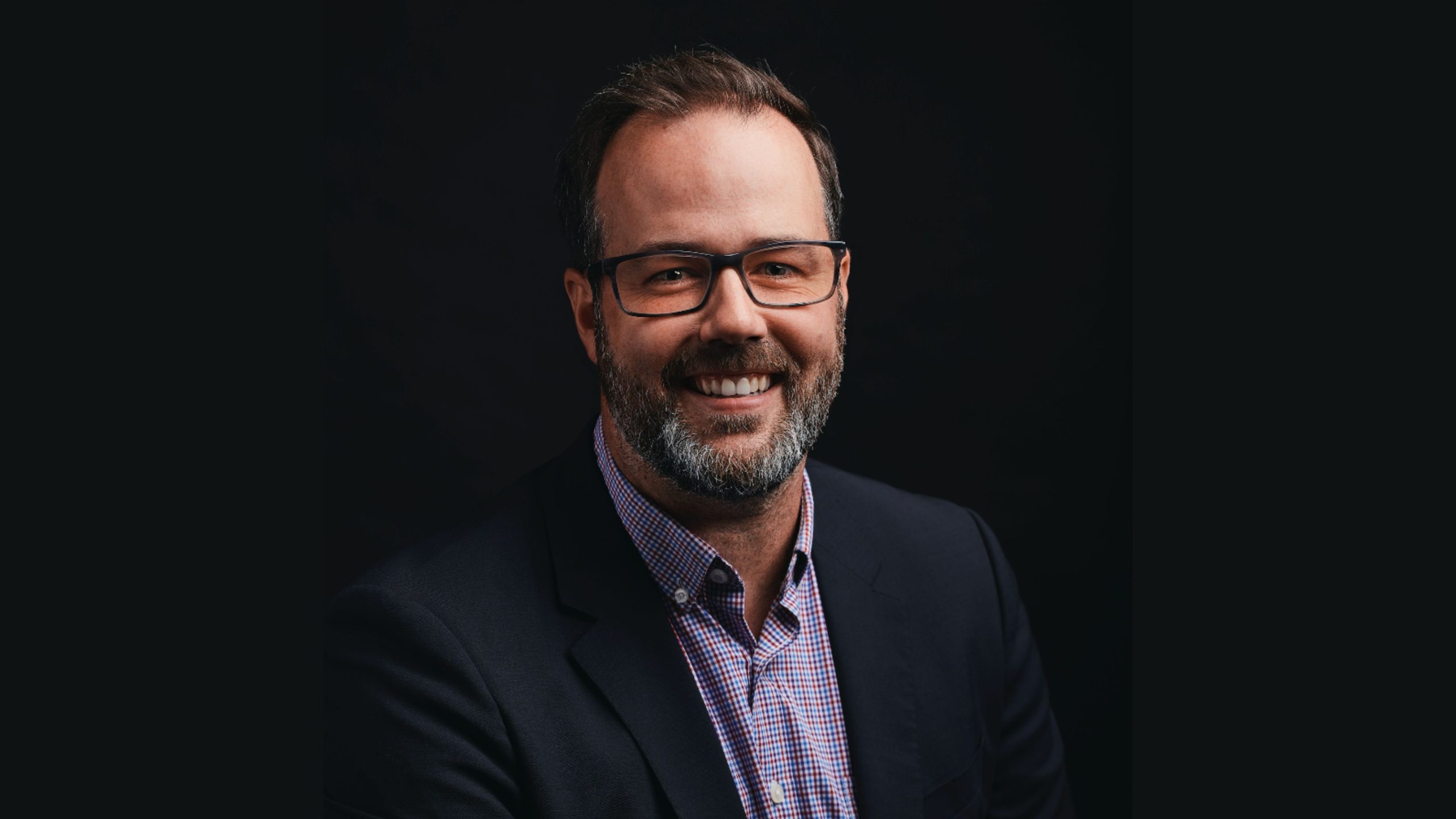[vc_row][vc_column][vc_column_text]
Artisans behind the Oaxaca Pottery Collection.
[/vc_column_text][vc_column_text]Obakki is as committed to making an impact, as it is to beautiful design.
Originally launched as a fashion brand in 2005, Obakki has recently shifted into the lifestyle space. Working with skilled craftsmen and artisans from around the world, Obakki serves as a global marketplace filled with products that are unique, beautiful and created with purpose.
Philanthropist and Founder of Obakki, Treana Peake, was inspired to create a positive change in the world from a young age. She created the Obakki Foundation to drill and monitor wells throughout Africa to bring clean water to surrounding areas. Since its creation, Obakki Foundation has helped provide clean water to almost three million people.
Obakki (the brand) serves as a means to fund the organization. The initial fashion brand was created with impact in mind, but it soon became clear to Peake that it didn’t really align with the kind of change she wanted to create.
“I started Obakki as a fashion company while I was still doing all of the foundation stuff, and it would be really difficult,” she said. “I would come back from South Sudan, where we had just seen absolute poverty and conflict, then I go right to New York Fashion Week, where people would be like, ‘Oh my gosh! I love your shoes. It just became such separate worlds, and it was difficult to jump back and forth between both of them.”
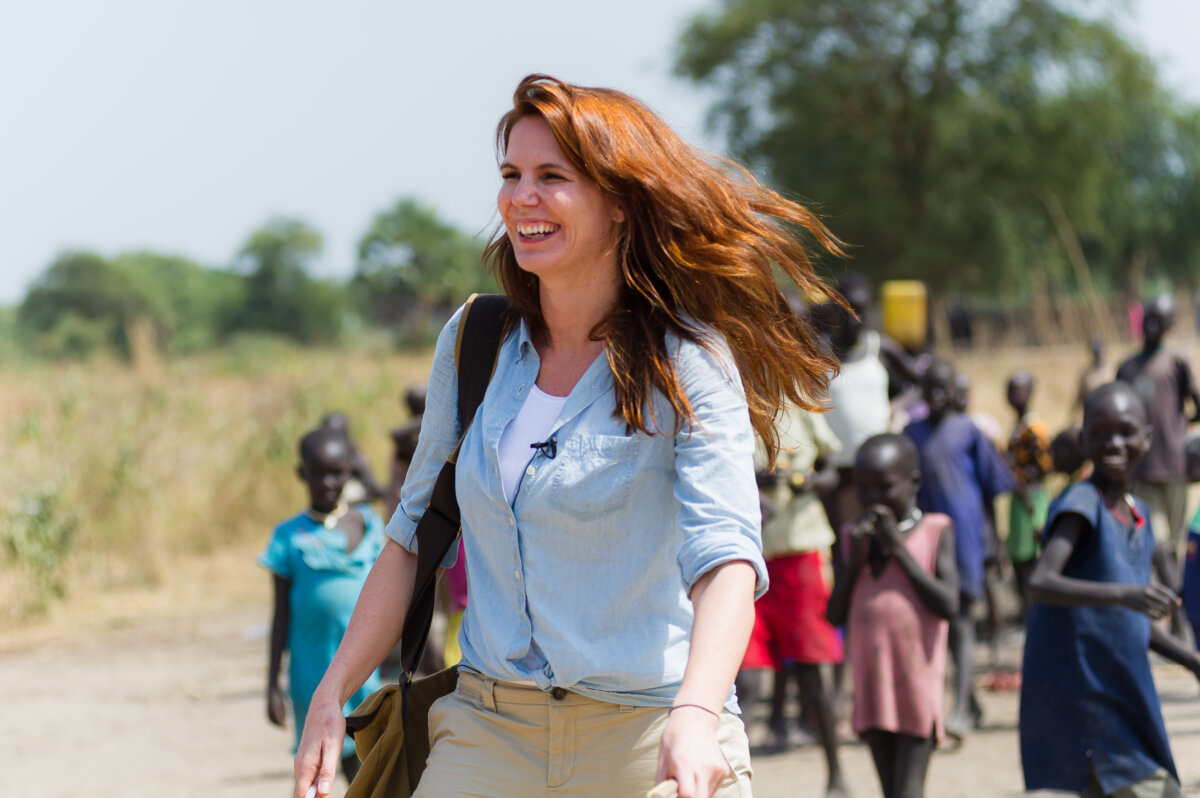

The shift to Obakki as a lifestyle brand helps combine Peake’s eye for design in a way that is better suited to the Obakki Foundation’s goals.
Obakki works with talented artisans throughout the world, by purchasing small batches of their carefully crafted work, which is then sold on their website. Throughout the process, Obakki is committed to being transparent, sustainable and true partners with their artisans.
On its website, you can find products like pottery, wall art, dining and jewellery. With each item, consumers can find out about the artisan behind the product. Many of whom Peake has built close relationships with over the last few years. She hopes that consumers understand and appreciate the amount of work that goes into each product.
“We have these bowls that a man named Amadou makes. It takes weeks for him to carve them, and he does it all by hand. They’re made from the scraps of wood that are left behind by Western logging companies,” said Peake. “When you get this bowl, it is the most beautiful bowl. It’s so amazing what he’s created. Obakki is trying to draw that attachment between who made it the product and the consumer.”
For this week’s Start-Up Spotlight, Bay Street Bull spoke with Obakki Founder, Treana Peake, about working with artisans all over the world and the company’s commitment to impactful work.[/vc_column_text][vc_text_separator title=”Q&A” color=”chino” style=”dashed” border_width=”3″][vc_column_text]What is the process like when you are seeking out the artisans for Obakki to work with?
A lot of our artists are very established, because we’re still a very modern design company. So, we’re working with these incredible glassblowers in Italy, we’re working with candle makers in Japan, we’re working with many different artisan communities throughout 18 different states of Mexico. However, we’re open to artisans, no matter where you are, or what economic sort of placement you’re in. I’ve been exposed to a lot of these really remote rural communities in places like South Sudan, or in the refugee resettlement areas in Uganda.
For me, it’s not really a process of going out and seeking someone, it’s just me having been on all of these trips over the years and coming across and recognizing someone’s talent and skill. In the refugee resettlement area in Uganda, I found these beautiful pots in a home where I was teaching how to make shea butter and turn it into different things for economic stability, and I was like, ‘Where did you get that pot?’ One of the ladies took me to the market to meet the woman who was selling the pots, and she took me back to her village of 2000 people. They were selling one pot a month, for $1, and that money ($1) was used to help feed, clothe and educate the village. At the point, Obakki Foundation steps in to find a local market for them, whereas Obakki orders a bunch of these beautiful pots that this village has been making for generations.
There’s no real set process. In every country, it’s different. Every trip is different. Every artisan is different. So it’s more so about my eye for design or finding things that I like, and then we collaborate and we partner. Whenever possible, I add in the philanthropic component.
How does Obakki ensure that it honours its commitment to sustainability and fair wages to the artisans every step of the way? What’s going on behind the scenes?
That’s really important to us. I’m on the ground all the time; I travel to see all of these artisans myself. That way, I can ensure that the conditions are stable, and that artisans are being treated fairly, that there’s no damage done to the environment or the people behind the product. I actually don’t feel as a company that you can make those types of claims unless you’re there and seeing it with your own eyes. I do have representatives on the ground that check these things out for me on my behalf. But I always go and look with my own two eyes.
For example, in Mali, there’s a gentleman, Boubacar Doumbia, that we’ve been working with for a while. He makes these beautiful mud cloth table runners, and now he’s doing all of our textiles. He’s incredible. He has this workshop that brings an underprivileged youth, and he teaches them the craft of this Mali mud cloth making. It’s been something that’s very cultural to the region, and he uses it as a way to improve the lives of others. So, I was really drawn to him and his stories. I went over to meet him and watch the process, from start to finish, concept to completion, and found that there was this one tiny stage along the way, where they were using a little bit of bleach to brighten some of the lines, and then rinsing it. And I was like, ‘Where are you dumping that water?’ If you’re not there, you don’t see those things. [/vc_column_text][vc_row_inner][vc_column_inner width=”1/3″][vc_single_image image=”20507″ img_size=”400×400″][/vc_column_inner][vc_column_inner width=”1/3″][vc_single_image image=”20508″ img_size=”400×400″][/vc_column_inner][vc_column_inner width=”1/3″][vc_single_image image=”20509″ img_size=”400×400″][/vc_column_inner][/vc_row_inner][vc_column_text]You consider yourself both a philanthropist and a social entrepreneur. For you, what sets social entrepreneurship apart from regular entrepreneurship and why was it important for you to go that route?
It’s where my business and my philanthropy has collided. It’s being purpose LED, purpose driven and making an impact with our business. The way I look at my business is to take all of the profits and invest it back into expanding the artisan programs or into development work with the foundation. So really, it’s not even a business; at the end of the year, I just put it all back in anyway. I don’t consider it a charity, I consider it business partnerships. When we go into these villages, they’ll have a business plan, all the skill, the talent, the resources, and natural resources. Everything is ready to go, and they just need an international market. And so that’s what I’m able to provide. Everything is with purpose, and everything is led that way.
As we enter the holiday season, when consumers are looking for gifts to give to friends or family, what do you think they should keep in mind?
I think there’s more of a conscious consumer out there. I think people are buying less and they’re wanting to keep things in their homes longer. I feel like there’s this new wave of consumers that are tired of just throwing things out. And so, for me, I think it’s just that lesson of buying less and buying more meaningful stuff.
For example, we have these bowls that a man named Amadou makes. It takes weeks for him to carve them, and he does it all by hand. They’re made from the scraps of wood that are left behind by Western logging companies. And when you get this bowl, it is the most beautiful bowl. It’s so amazing what he’s created. Obakki is trying to draw that attachment between who made it the product and the consumer. I feel if consumers are out there, look for those sorts of things! No one’s gonna donate that bowl, no one’s gonna throw it away and get another bowl next year, because it’s so meaningful. We have customers that have it [one of the bowls] on their table and they have the picture of Amadou with it under the bowl. When people come to their house, they’re like, ‘This man made this!’
For me, if you’re going to buy this or you’re going to buy that, look for those companies that can trace it back. Companies that know their supply chain and know the people that are behind it. Companies that are willing to invest in telling that story and actually do that work for the consumer. There are more and more of those companies out there now. We’re quite inspired in this space, seeing what some other brands do and the traceability and the transparency and being authentic.
If you’re giving a gift to someone, give them a gift that does something good in the world. Something that does good to begin with, but also doesn’t do damage to the environment or damage to the people behind it.[/vc_column_text][vc_column_text]
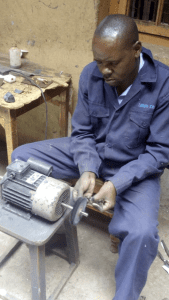

Do you have any favourite recollection or memory throughout the years of building Obakki?
I have way too many to tell. In an hour I couldn’t even tell them all. Every time I travel, I meet someone that I’m inspired by. A gentleman that I just visited on my last trip is named Sylvester; he makes all of our jewelry and our brass spoons. His goal is to expand his business, and so I tell him about the customers that are wearing his pieces and I bring messages from the customers to give to him. He’s always so excited that his jewelry is being worn in North America. I guess for me, it is really just about people. And it’s about all the people that we’re meeting, it’s not one person. It’s just about being that proper business partner, investing in people’s lives, believing in people and then connecting our consumers to them. Guys like Sylvester have big dreams and goals of expanding, and we’ll be able to do that together with him as our customer base grows. We have customers that want to see what Sylvester has been working on. So, it’s people buying into people, which I think is pretty incredible.[/vc_column_text][vc_row_inner][vc_column_inner width=”1/2″][vc_single_image image=”20513″ img_size=”600×600″][/vc_column_inner][vc_column_inner width=”1/2″][vc_single_image image=”20512″ img_size=”600×600″][/vc_column_inner][/vc_row_inner][vc_column_text]What has been the biggest lesson that you’ve learned throughout your time growing Obakki?
The biggest thing that I’ve learned is to continue believing in people. We have a very small team here. It’s people that are really passionate, they’re driven, they’re committed, they’re purpose LED. It’s a lot of the same staff that I started the company with since I opened. We were really big at one point with lots of staff, but I just felt like we didn’t really need that. For me, it was about scaling it down to a core group of committed people.
And that’s kind of what we do out there with the partners that we find. We have so many artists and partners now, but they’re not big either. You don’t have to be operating at the level of thousands of meters of fabric and overseas manufacturing and factories here and there. Something with small groups of people on a smaller scale can have as much impact and it can even raise as much money. I always thought to be a successful company and to create impact, the bigger the better. But that really isn’t the case.
What are your hopes for Obakki and the Obakki Foundation? Do you have an end goal? Will you ever be satisfied with the impact that you’re making?
I’m the type of person that is always going, going, going and pushing, pushing, pushing. When I meet another artist and community or I go to another place and know that I can make a difference in, I’m not sure that I’ll ever sit back and feel like I’m finished.
In the same breath, I don’t feel like it’s a burden or a responsibility. It’s truly something that I love to do and that I’m still inspired by every single morning that I wake up. Someone taught me something a little while ago when I was drilling water wells in South Sudan. I think we ended up with like 4000 wells or something, and I was talking to a man who was from a different state and he was like, “When are you gonna come to my state drill water wells?” Then I started to feel the guilt of not being there. And he was like ‘Stop and celebrate what you’ve accomplished.’ It was hard to do because I am that kind of person where I’m just like, ‘Okay, that’s done. What’s next?’ But here was this guy who was living in a state that was in constant conflict and had no clean water, and he’s telling me to step back and celebrate and realize the things that we’ve done and the impact that we’ve created. I guess I’ve learned to do that [celebrate the wins] a little bit.
It’s important to be able to step back and celebrate those wins. I think that can also kind of help you motivate yourself to move forward, because you can see all the impact that you’ve made thus far and really reflect on that.
My goals, I guess, are really just to keep going. Keep expanding artists and partnerships. I’m really fueled, not necessarily by sales, but when I see that Amadou has been able to expand his business. For me, that’s the part that really motivates me and drives me: the results that I see for our artisans.[/vc_column_text][vc_separator color=”chino” style=”dashed” border_width=”3″][/vc_column][/vc_row]


